High steaks: Lutheran Services CEO Nick Ryan discusses ageing and dementia
It’s already Australia’s second-biggest killer after heart disease but this expert says the brain is a muscle that can be trained to overcome the debilitating impacts of dementia.
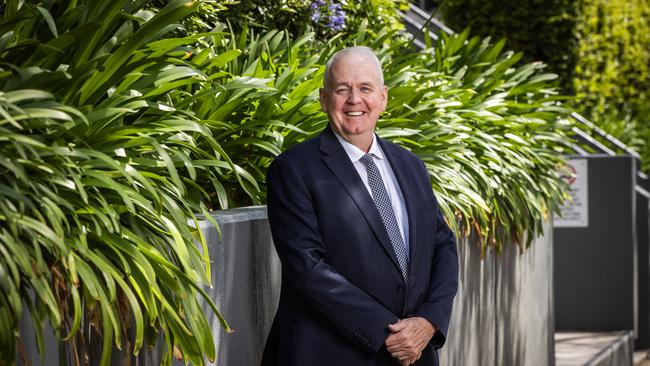
QLD News
Don't miss out on the headlines from QLD News. Followed categories will be added to My News.
Losing your youth is one thing, losing your mind another.
So it might be a good thing, if you’ve passed the age of 60, to get your Spotify list sorted, learn to speak Korean, enrol in a university course, buy a few jigsaw puzzles or simply start engaging in spirited political arguments with a good friend.
Because dementia, in all its myriad forms, is lying in wait for us, especially those among us who are not willing to exercise our brains.
Dementia is already Australia’s second-biggest killer after heart disease.
It’s the number one cause of death for women over the age of 65 and, in 30 years, is predicted to eclipse heart disease as the biggest cause of death for all Australians, both men and women.
It’s deeply grim news for the seniors among us, yet it doesn’t appear so as Lutheran Services CEO Nick Ryan and I slice into eye fillets, chips and salad at that grand Victorian building in Toowong otherwise known as the Regatta Hotel.
The photographer has generously ordered us a bottle of red but we mainly stick to the sparkling mineral water, enjoying a “nine out of ten’’ lunch in a bustling restaurant overseen by friendly staff who serve beautifully prepared food.
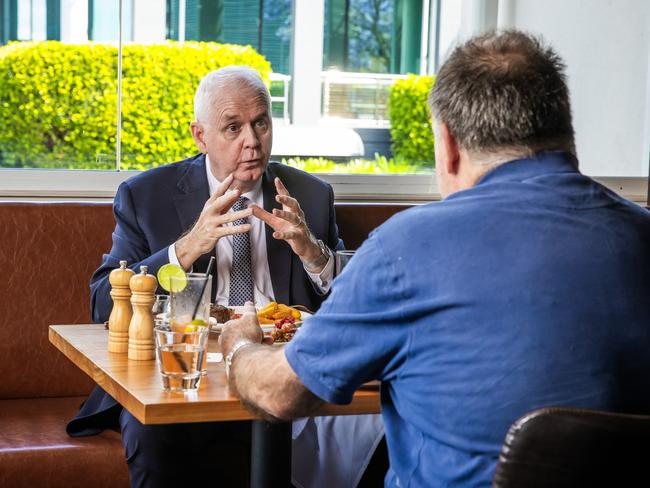
Generations of University of Queensland students have gathered here to celebrate sporting victories, commiserate academic failures, pursue romantic interests, and consume strong drink with “no thought for the morrow”.
For Nick and I, the “morrow’’ has quite definitely arrived and, with it, the challenges of ageing.
The statistics, in a rough-hewn sort of way, are pretty clear – if you get past 60 without a serious diagnosis of illness, you’ve got a good chance of getting to 80, and if you get past 80, you’re probably going to suffer some form of dementia.
“Dementia is not one disease,’’ Nick explains.
Alzheimer’s disease gets the headlines but there are a range of other diseases of the vascular system – or of blood vessels and arteries – which come under the umbrella of dementia, which is closely linked with heart disease.
But what exactly does it do to you?
Essentially, your brain, which controls everything, fails you.
You suffer a loss of function, a decline in cognitive skills, you develop a sense of isolation from the rest of the world and, in the worst examples, you simply don’t know yourself, or your loved ones.
Nick is a man closely connected with this illness, overseeing around a dozen nursing homes or 1100 nursing home beds in this state along with hundreds of Commonwealth Home Care Packages, which allow the elderly to stay in their own homes far longer than was previously considered appropriate.
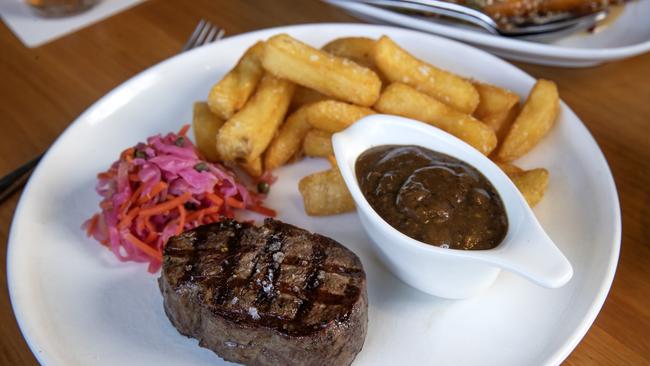
He’s a Catholic who studied theology at University of Divinity in Melbourne in his early 20s, but not with a view to taking holy orders.
He wanted to better understand the West’s intellectual tradition or – to put it another way – how we all came to think the things that we think.
“The basis of what we take for granted fascinated me,” as he puts it.
Nick’s credentials as he passes his 60th birthday are too long to list, but include a stint as chief executive of the Australian Aged Care Quality Agency, CEO of Aged Care Queensland (now part of Leading Age Services Australia) and a fellow of the Australian institute of Company Directors.
He’s also had board stints with Australian Children’s Education and Care Quality Authority, the Leukaemia Foundation of Queensland and the Archdiocese of Brisbane Catholic Education Council.
Heading an organisation with a Lutheran pedigree suits him just fine, and he’s quick to point out all staff are given some instruction on the religion which dates back not only to Martin Luther’s challenge to Rome in 1517, but also to the founding years of the state of Queensland.
It was in 1838 that two German groups immigrated to Australia – one went to South Australia, the other to Queensland.
The Moreton Bay penal settlement was a hellhole, and it was the Lutherans who represented the first humane, non-penal organisation in the state when they set up a mission for Indigenous people out at what is now Rode Rd on Brisbane’s northside.
Their culture is based on a simple philosophy – care for your fellow human beings.
“I want our people to understand the value and the identity and the worth of what we inherited,’’ says Nick.
“You need to have an appreciation of that narrative, that model of care, that set of values. For us the Lutheran identity is very important.’’
Caring for the aged is by no means dominated by dementia, and the illness itself is undergoing a sort of rebranding much as cancer did a few decades back when it was decided that cancer was “a word, not a sentence’.’
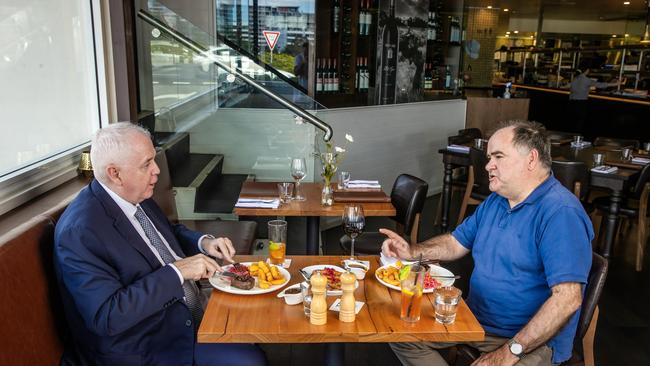
But dementia’s presence in aged care is being felt much more powerfully because we all live so much longer, and the longer we live, the more our growing ailments are exposed.
“It’s like when the tide goes out, the jagged rocks are laid bare,” Nick says.
But Nick uses the example of people with disabilities celebrating extraordinary sporting achievements to illustrate the fact that, if you get into training your brain, it can overcome the debilitating impacts of ageing.
“The brain is a muscle; you can train it,” he says.
Learning a new language, doing puzzles, reading and engaging in discussion are all ways of keeping the brain in use and, when it does fade, studies have shown that the old music you loved when you were young can reawaken it.
So start collecting a few old Eagles and Fleetwood Mac albums, or perhaps the Sex Pistols’ Never Mind the Bollocks, if you want to light up multiple segments of the fading brain and annoy your neighbours.
Anticipating and enjoying a good meal can also help keep you and your brain healthy, though aged care homes are not known for their cuisine.
Nick says around 50 per cent of Australian aged care residents are clinically malnourished, and a large percentage of that malnourishment is avoidable.
Lutheran Services have long recognised the fact that mealtimes should be high points of the day and have established a “Happy Table’’ initiative which insists that $14 per day is spent on raw food for each resident, not including labour costs.
“Loneliness and food are the two big issues in aged care,’’ Nick says.
“People cannot eat, or are inspired to eat, and we try and address that.’’
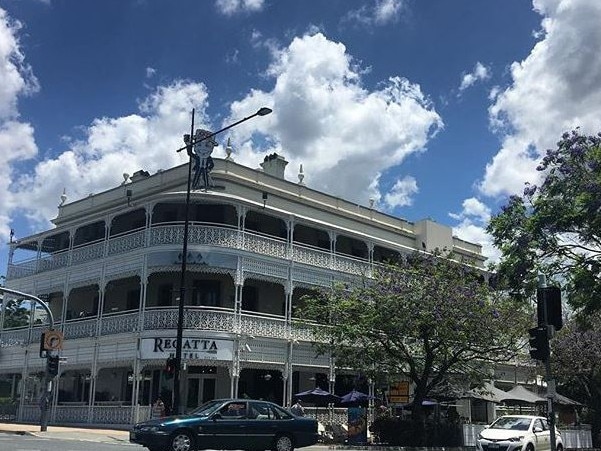
On a positive note, the Commonwealth’s new Aged Care Act expected to pass the Senate and become law from next July is, in Nick’s view, a positive piece of law making focused on the rights of people which will improve our experience of aged care in the years ahead.
It follows on from the Royal Commission into Aged Care Quality and Safety and provides both a new way forward, and a new sense of certainty.
Many might think aged care is a profitable business, yet the reality is that around 66 per cent of homes have been running at a loss for the past decade, and banks have long been cautious to lend money to providers.
“This is a rights-based approach,’’ Nick says of the new legislation.
“It strengthens safeguards and gives greater transparency, greater access to information.’’
It is also true that self-funded retirees will probably pay more for their aged care under the new laws, and governments of the future will insist that residents pay more for their own personal living costs while in care.
But, as is so often the case in this nation, the poorest of the poor will still be taken care of.
A “concessional resident’’ – a pensioner with no assets – will still be completely funded in aged care by the Commonwealth.
They may have to hand over the bulk of their pension, retaining 15 per cent for pocket money, but will be the beneficiaries of a reasonably well funded aged care sector.
“It looks to me like, after years of discussion and reviews, we are now going to have certainty in aged care,’’ says Nick.



